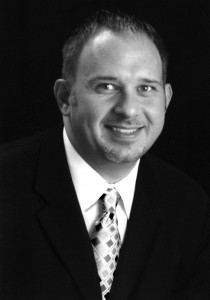How to Professionally Deliver an Acceptance Speech
By: THE Executive Speech Coach Patricia Fripp, CSP, CPAE
It doesn’t matter if you are accepting a major award from a national industry organization, a charitable entity, or a small local group, accepting an award is like walking a tightrope. You need to be gracious, grateful, and appropriately humble. Be careful not so humble or self-deprecating that the audience thinks you are trivializing the honor. The warm glow of the occasion can suddenly turn chilly or sour with a few ill-chosen words.
Don’t Trivialize
One gentleman I coached was due to receive an award from an organization with over 100,000 members. Two thousand people would be in the audience. “I want to be funny,” he told me, “so I’ll start by saying how desperate they must be to give me this award.” I persuaded him that he’d be insulting the organization and everyone who had ever been honored. We worked together to come up with a gracious acceptance speech, still funny, but one that would leave everyone present feeling great about the evening, the award, and the organization.
Be Appropriately Funny
Daniel Dycus was the 2009 American Payroll Association’s Man of the Year. Early in his speech, he said, “Like many of the successes in my career, being awarded your 2009 PMOY came as a complete surprise. Growing up on a farm in Northwest Georgia, I always loved animals. In the ninth grade, my goal was to become a…veterinarian. My dreams were shattered in my first biology class. When the teacher said, ‘You are in for a treat… this is the day you will be dissecting your first frog.’ I turned…greener than the frog and decided the perfect career choice was… accounting.”
If you are active in your local community or professional association, sooner or later, there is a high probability you will be presented with an award. It may be a surprise, or you may have time to prepare. Use your answers to the following questions to weave a warm, wonderful story that will leave everyone with a big smile or maybe a tear.
7 Questions to Ask Yourself
- Who nominated you?
- Who invited you to join this group or encouraged you to get involved in this project or event?
- What is your connection to this group?
- How do you feel about the people and the organization’s goals?
- Why are they giving you this award?
- When was the first time you attended a meeting and what were your experiences?
- Have you seen someone else accept this same award?
The audience will not remember all the details of what you say, but they will remember the stories you tell. Include a memorable vignette or incident, something entertaining or touching about your connection.
Honor the Audience
Dan Maddux, Executive Director of the American Payroll Association, received the Meeting Partner of the Year award from the National Speakers Association. His four-minute acceptance speech was one of the highlights of the convention. First, he said he was honored. Second, he said what his audience loved hearing: “I consider professional speakers to be my partners and my best investment in the success of my conventions.”
Learn from the Oscars
Show biz can provide wonderful examples of great acceptance speeches. When Russell Crowe won an Oscar for The Gladiator (2000), he dedicated it to “Everyone who has seen the downside of disadvantage.” Then he got the 2002 Golden Globe Award for A Beautiful Mind. First, he gave credit to the characters in the film, offering special thanks to “John and Alicia Nash, for living such an inspirational love story.” He added, “A Beautiful Mind is just a movie, folks, but hopefully it will help us open our hearts … to believe that something extraordinary can always happen in our lives.”
It’s okay to be excited. Sally Field’s joy when she won the 1979 Academy Award for Norma Rae has never been forgotten:
“You like me! You really like me!”
When Cher won the 1987 Oscar for Moonstruck, she said,
“I know this does not mean I am somebody, but I am on my way to become somebody.”
Action-star ‘Everyman’ Harrison Ford was honored with the Hollywood Foreign Press Association’s Cecil B. DeMille Award in 2002, for “outstanding contribution to the entertainment field”–or more specifically, 35 movies over four decades, including Star Wars, Raiders of the Lost Ark, Witness, The Fugitive, and Patriot Games.
Harrison Ford said, “In anticipation of tonight, I wrote two speeches, a long one and a short one. I’ll give you the short one: Thank you. But it seems there might be enough time for the long one as well, which is: Thank you very much.”
Whenever you have some advance notice, be sure to ask how long you are expected to speak. The shorter your time slot, the more you will need to practice! When the time comes, look directly at the audience. Never read your remarks. You can walk up on stage with notes, but they should consist of a few bulleted points.
Whenever you are involved in leadership in your professional organization, your company, or your community, or in philanthropy, you are likely to get an award some day. It’s better to have a few well-crafted remarks ready just in case than to be caught speechless. Or worse, saying the wrong thing. Be gracious. Be modest. Be prepared!
Be gracious. Be modest. Be prepared!
Marty Rapozo, President of Abide International was one of five recipients to accept an award given by Chico State University for being an Outstanding Alumni at a formal black tie event. The opening line we created was “What an honor to be considered somebody else’s success.” In his seven-minute tightly scripted presentation he told of his hardworking immigrant parents, the advice that his counselors had given him that direct him to Chico State’s first program on Construction Management. At the very grand celebration, he stole the show with his very first speech ever. Even his toughest critic, his wife whispered, “You were amazing. It is obvious nobody else worked with a speech coach!”
Do YOU need a speech coach? Patricia Fripp is THE Presentation Skills Coach.
Read More...
